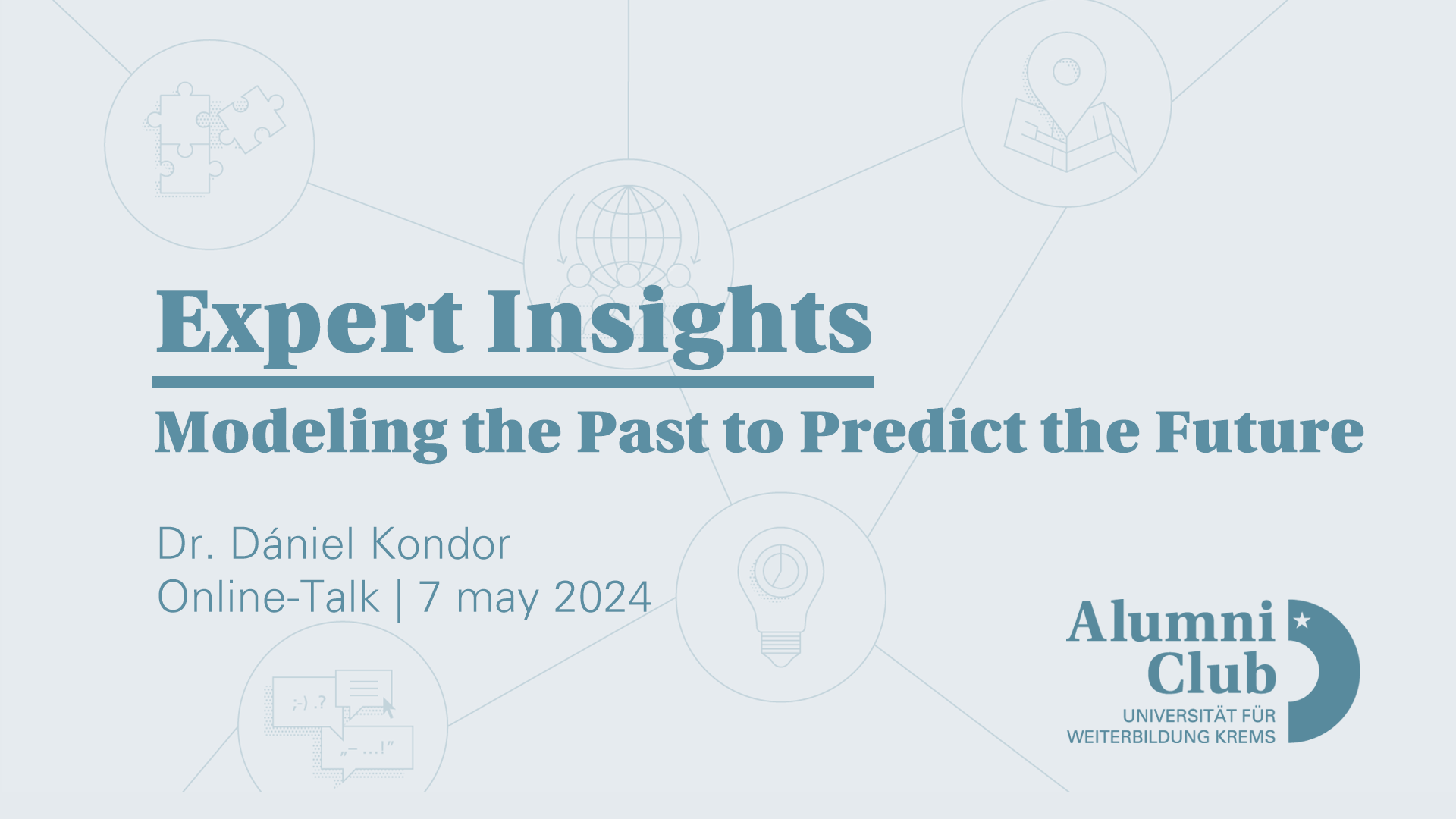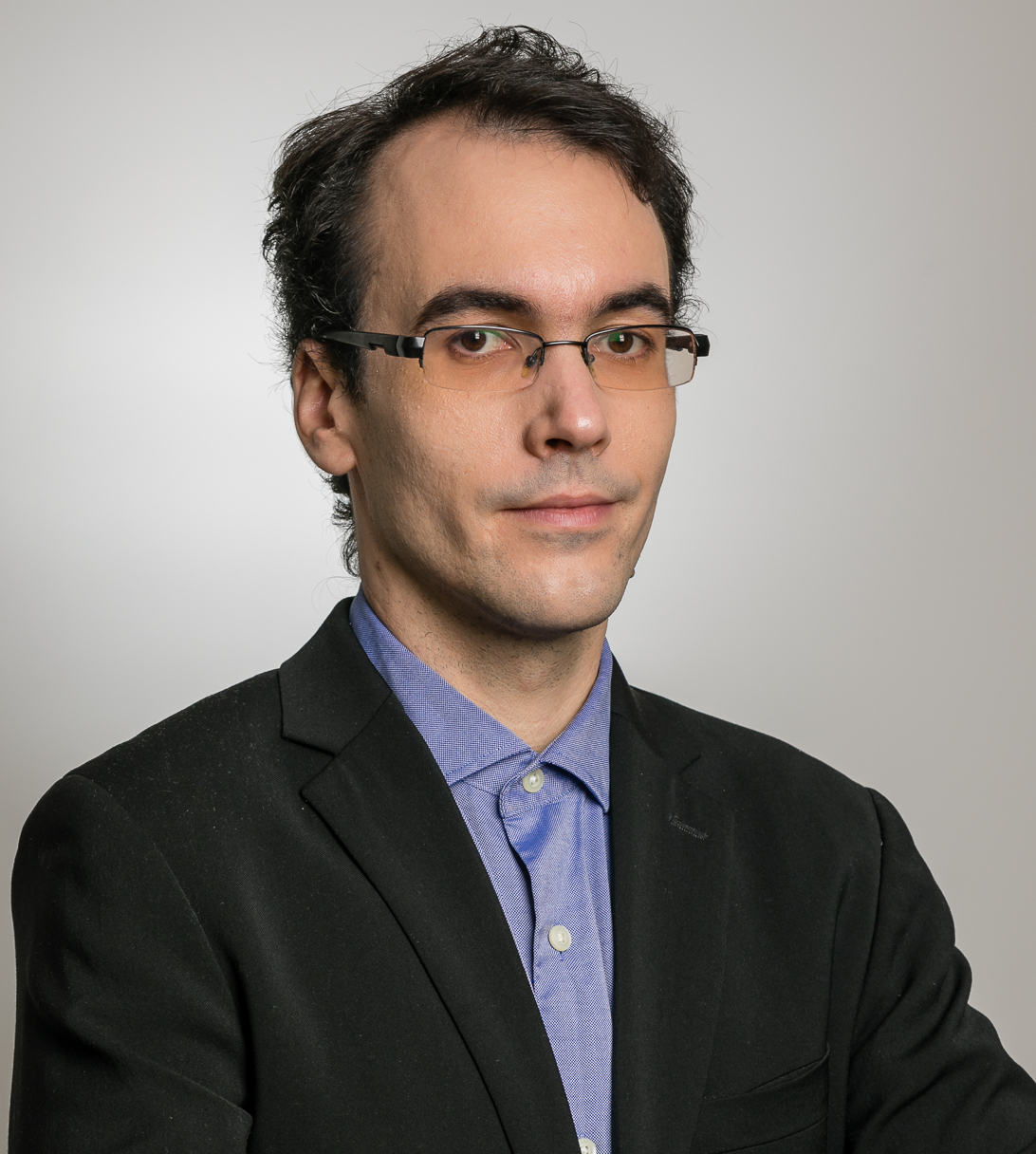Nachbericht // Follow-up Report Dániel Kondor
Alumni Club | Expert Insights
"Modeling the Past to Predict the Future"
Understanding (Pre-)History Through Computational Modeling
Online Vortrag von Dr. Dániel Kondor
7.5.2024
Um die Zukunft besser verstehen zu können, bedarf es oftmals zuerst einen Blick in die Vergangenheit. Dr. Dániel Kondor vom Complexity Science Hub sprach zum Thema "Modeling the Past to Predict the Future" und zeigte auf, dass die gesellschaftliche Komplexität nicht gleichmäßig und allmählich zugenommen hat. In allen komplexen Gesellschaften kommt es von Zeit zu Zeit zu Turbulenzen und Funktionsstörungen, die häufig zu einem Zusammenbruch der Institutionen und einem Bevölkerungsrückgang führen können. Kondor verdeutlichte in seinem Vortrag die Notwendigkeit, das zunehmende Wissen über menschliches Verhalten in verschiedenen Kontexten mit langfristigen Ergebnissen in der Vorgeschichte und der Geschichte zu verbinden.
Er erläuterte zudem, wie durch eine Kombination aus Datenerhebung, statistischer Analyse und Computersimulationen ein besseres Verständnis über komplexe Gesellschaften erreicht werden kann.
Als Beispiel hierfür ging der Physiker speziell auf das prähistorische Europa ein, in welchem es hochdynamische Interaktionen zwischen menschlichen Gruppen und ihrer Umwelt gab. Er erörterte zudem, wie schwierig es sein kann, Hypothesen über die Rolle verschiedener Faktoren zu testen, und wie hierbei die computergestützte Modellierung helfen kann.
Wir freuen uns schon auf das nächste Mal!
Alumni Club | Expert Insights
"Modeling the Past to Predict the Future"
Understanding (Pre-)History Through Computational Modeling
Online-Talk by Dr. Dániel Kondor
7 may 2024
In order to better understand the future, it is often necessary to first take a look at the past. Dr. Dániel Kondor from the Complexity Science Hub spoke on the topic of “Modeling the Past to Predict the Future” and showed that social complexity has not increased evenly and gradually. All complex societies experience turbulence and dysfunction from time to time, which can often lead to the collapse of institutions and population decline. In his presentation, Kondor highlighted the need to link the increasing knowledge of human behavior in different contexts with long-term outcomes in prehistory and history.
He also explained how a better understanding of complex societies can be achieved through a combination of data collection, statistical analysis and computer simulations.
As an example of this, the physicist looked specifically at prehistoric Europe, where there were highly dynamic interactions between human groups and their environment. He also discussed how difficult it can be to test hypotheses about the role of different factors and how computational modeling can help.
We are already looking forward to next time!
Aufzeichnung des Online-Vortrags // Recording of the Online-Talk
Eine Aufzeichnung des Online-Vortrags von Dr. Dániel Kondor, steht Mitgliedern des Alumni Clubs unter diesem Link ohne zeitliche Einschränkung zur Verfügung. // As a member of our Alumni Club, you will also have access to a complete recording of the online talk without any time restrictions.
>> Zum Video (Zugang für Alumni-Club Mitglieder)
Zugangsdaten
Sie sind Alumni-Club Mitglied und haben Ihre Zugangsdaten nicht erhalten? Senden Sie uns ein Mail an alumni@donau-uni.ac.at, wir schicken Ihnen Ihre Zugangsdaten gerne erneut zu.
Zur Person | Dániel Kondor
Dr. Dániel Kondor trat im Mai 2021 als PostDoc dem Complexity Science Hub bei. Davor arbeitete er am Senseable City Lab am MIT und bei SMART FM in Singapur. Er promovierte 2015 in Physik mit Schwerpunkt Netzwerk- und Datenwissenschaften an der Eötvös Loránd Universität in Budapest.
Aktuell ist er Mitglied des Forschungsteams von Peter Turchin, das sich mit dem Thema "Social Complexity & Collapse" befasst.

